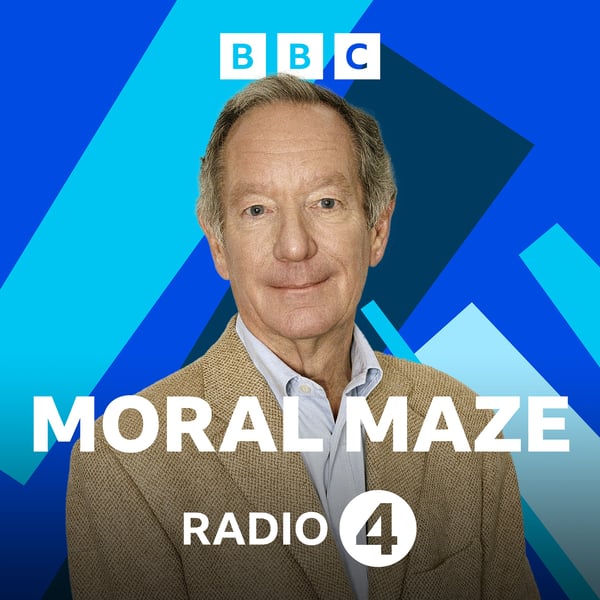Lest We Forget: the Morality of Remembrance
Moral Maze
BBC
4.5 • 609 Ratings
🗓️ 8 November 2018
⏱️ 43 minutes
🧾️ Download transcript
Summary
The centenary of the end of the First World War this weekend is a significant moment for collective moral reflection. What is the point of remembering the fallen? Is it to make a solemn vow that we will not let their sacrifice turn out to have been in vain and that we will fight to hold onto the freedoms they fought to defend? Or is it formal commitment that we will not repeat the mistakes of the past and that we will never again send our young men to die uselessly for a cause they do not understand? We can all accept that the rituals and symbols of remembrance say a lot about the values and shared emotions of our nation in the 21st century, but do they express the best or the worst of our nationhood? History and psychology teach us that we are bad at learning from our mistakes. Maybe that’s because remembrance, according to critics, sentimentalises the past, sugar-coating history with the politics of the present, reinforcing nationalism rather than national togetherness. Maybe, in many corners of our grieving and grudgeful planet, there is a moral case for forgetting. That view - reply the crowds who lined the streets of Wootton Bassett to welcome home the heroes of Helmand - is unpatriotic rubbish. Meanwhile the armed forces are seeing their biggest personnel shortage in a decade. The Chief Of Defence Staff, General Sir Nick Carter recently questioned whether today’s young people understand the "notion of service". If that’s true, should we welcome their independence of mind, or deplore their lack of loyalty? If it does nothing else, perhaps the act of remembrance serves to remind us of the virtue of sacrifice and that millions of people once rallied to a cause they believed to be greater than themselves.
Producer: Dan Tierney
Transcript
Click on a timestamp to play from that location
| 0:00.0 | You are listening to a programme from BBC Radio 4. |
| 0:03.6 | Good evening. Lawrence Binions for the Fallen is not a great poem, |
| 0:07.5 | or even by the standards of later darker war poets like Owen, Blundon and Sassoon, a particularly good one. |
| 0:13.3 | Its most famous verse is constantly misquoted with the knot in they shall grow not old, frequently in the wrong place, |
| 0:19.9 | and nor the years condemn, instead of the correct contempt. |
| 0:24.1 | It's about the dead avoiding scorn, not judgment. |
| 0:27.9 | But they are the most frequently and widely spoken lines in English literature for 100 years, |
| 0:32.9 | articulating grief, bereavement, consolation, and above all the desire and duty to remember. |
| 0:39.1 | They'll be spoken again in every town and village this weekend, the symbolism of the exact |
| 0:43.7 | century since the armistice which ended that most dreadful of all wars, giving them added |
| 0:48.8 | force and pathos. Time, perhaps, to ask, why should we remember, "'so that their deaths should not have been in vain, |
| 0:56.1 | "'because their lives bought our freedoms, |
| 0:58.9 | "'because we mustn't let it happen again. |
| 1:01.1 | "'There are those who say it sentimentalises the past, |
| 1:04.2 | "'that it reinforces the nationalisms |
| 1:06.3 | "'that wrecked a continent and ripped a generation apart, |
| 1:09.4 | "'even sombre and reflective, though the services are, |
| 1:12.7 | that they somehow glorify war. We do live in a different age by different morays, only last week, |
| 1:18.7 | the chief of the defence staff, General Sir Nick Carter, who's facing something of a recruitment |
| 1:23.1 | crisis, questioned whether today's young people understood the notion of service. |
| 1:29.3 | Do we have a duty to remember, or 100 years on, is there a moral case for forgetting? |
| 1:34.9 | That's our moral maze tonight. |
... |
Please login to see the full transcript.
Disclaimer: The podcast and artwork embedded on this page are from BBC, and are the property of its owner and not affiliated with or endorsed by Tapesearch.
Generated transcripts are the property of BBC and are distributed freely under the Fair Use doctrine. Transcripts generated by Tapesearch are not guaranteed to be accurate.
Copyright © Tapesearch 2025.

